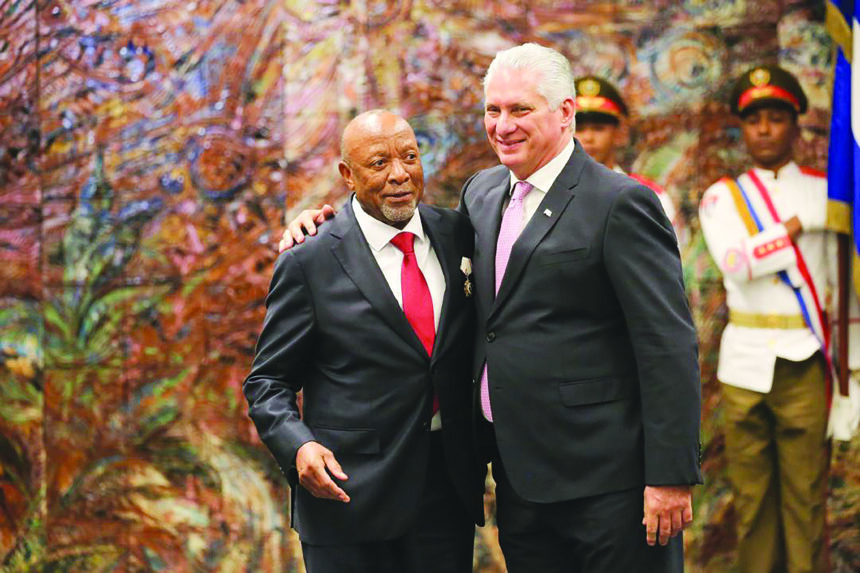Namibia has welcomed Cuba’s removal from the United States’ list of state sponsors of terrorism, which president Joe Biden announced in one of his final official acts.
President Nangolo Mbumba has commended Biden’s decision to remove Cuba from the list of state sponsors of terrorism.
In a media statement released yesterday, Mbumba welcomed the announcement, reaffirming Namibia’s long-standing support for Cuba.
“I commend the US government for having eventually taken the long-overdue decision to remove Cuba from the list of state sponsors of terrorism. Namibia has consistently advocated for the removal of Cuba from the list, deeming it arbitrary, unjust and with no basis in international law,” he stated.
Mbumba emphasised that while the decision marks progress, further action is still necessary to improve relations between the two nations.
“This step should be followed by tangible actions by the US government to end the unjust and illegal economic blockade against Cuba”, he urged.
Until Biden’s announcement, Cuba had been placed alongside North Korea, Syria and Iran on the US state sponsors of terrorism list, and were deemed by the US government to have repeatedly provided support for acts of international terrorism.
Inclusion on the list enables the US government to impose four main types of unilateral sanctions, which are restriction of foreign aid, a ban on weapons sales, heightened control over the export of dual-use equipment, and other miscellaneous economic sanctions.
In return for its removal, Cuba is expected to release over 553 political prisoners as
part of the new deal, which was reportedly brokered by the Catholic Church, and comes just days before president-elect Donald Trump is due to be sworn in.
“Namibia further believes that this move is expected to ease some economic restrictions and foster better understanding, as well as result in good diplomatic relations. Namibia is confident that this gesture by the outgoing US administration will contribute to strengthening international cooperation, and hopes that the incoming administration will continue to maintain the same diplomatic posture for the mutual benefit of the two countries and peoples,” said Penda Naanda, the executive director in the Ministry of International Relations and Cooperation.
He added that the latest development could pave the way for further cooperation and mutual understanding between Cuba and the US, especially in the economic and social arenas.
Solidarity
Over the years, the Namibian government has been vocal in its support for Cuba’s continued fight against the US economic, financial and commercial blockade against the island nation.
Besides having had Cuba on that list, the US has to date maintained a 60-year-old economic blockade against Cuba, which prevents American businesses from conducting trade or commerce with that nation, and has negatively impacted all sectors of the Cuban economy.
During his two-day State visit to Cuba late last year, Mbumba had labelled the ongoing blockade against Cuba as the most enduring and inhumane trade embargo in modern history.



